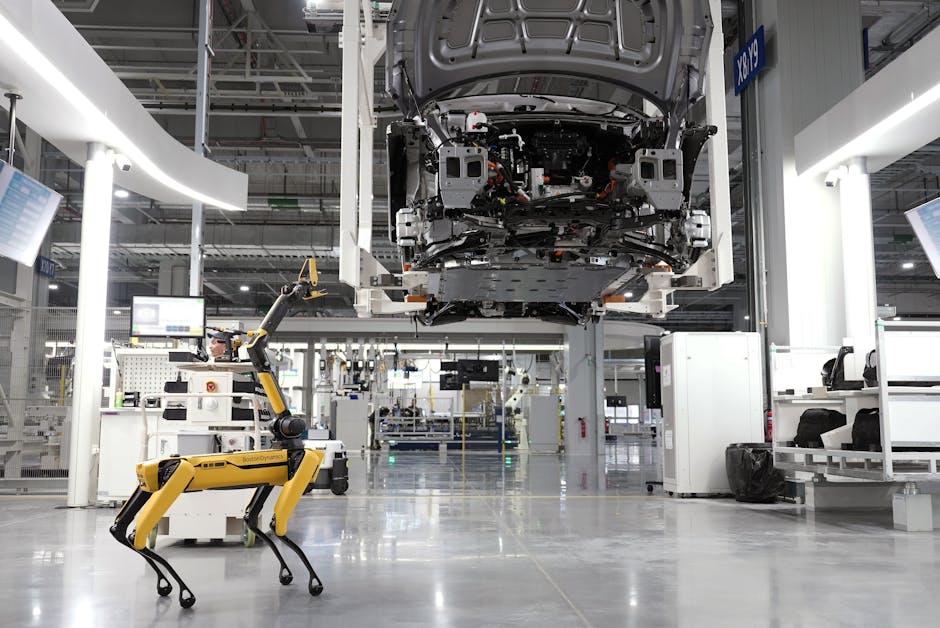The Rise of AI in Product Recommendations
Imagine scrolling through your favorite online shopping platform, and before you even type a single letter in the search bar, you are greeted with a list of items that seem tailor-made just for you. How does the platform know your preferences so well? The answer lies in the rise of Artificial Intelligence (AI) in product recommendations. In this article, we will delve into the fascinating world of AI-powered product recommendations, exploring the history, current applications, future trends, and the impact of this technology on e-commerce and beyond.
The Evolution of Product Recommendations

Product recommendations have been a staple feature of e-commerce platforms for years. Initially, recommendations were based on simple rules such as “Customers who bought this item also bought” or “Recommended for you.” These rules relied on basic algorithms that analyzed user behavior and purchase history. However, as technology advanced, so did the sophistication of product recommendation systems.
AI algorithms, particularly machine learning and deep learning models, have revolutionized the way product recommendations are generated. These algorithms can analyze vast amounts of data, including user demographics, browsing history, purchase patterns, and even social media interactions, to create highly personalized recommendations. AI can detect subtle patterns and correlations that humans might overlook, resulting in more accurate and relevant product suggestions.
The Role of AI in Personalization

Personalization is key to the success of product recommendation systems. AI algorithms can create detailed customer profiles based on a wide range of data points, allowing for hyper-targeted recommendations. For example, AI can take into account factors such as location, device type, time of day, and even weather conditions to tailor product suggestions to individual users.
One of the main advantages of AI-based personalization is its ability to adapt in real-time. As users interact with the platform, AI algorithms continuously learn and update their recommendations based on new data. This dynamic approach ensures that users are presented with the most relevant products at any given moment, increasing the likelihood of conversion and customer satisfaction.
The Impact on E-Commerce

The integration of AI in product recommendations has had a profound impact on the e-commerce industry. Retailers and online platforms have seen significant improvements in key metrics such as conversion rates, average order value, and customer retention. By offering personalized recommendations, businesses can enhance the overall shopping experience, leading to increased customer loyalty and engagement.
Moreover, AI-powered product recommendations can help retailers optimize their inventory management and pricing strategies. By analyzing user preferences and purchasing behavior, AI algorithms can predict demand trends, identify popular products, and even suggest pricing adjustments to maximize sales and profitability.
Challenges and Controversies

While the rise of AI in product recommendations has brought many benefits, it has also raised concerns regarding privacy and data security. AI algorithms rely on vast amounts of user data to generate personalized recommendations, leading to questions about how this data is collected, stored, and used. There are ongoing debates about the ethical implications of AI-driven personalization and the potential risks of data breaches and misuse.
Another challenge is the issue of algorithmic bias. AI algorithms are only as good as the data they are trained on, and if the training data is biased or incomplete, the recommendations generated by the algorithm may reflect these biases. For example, an AI system that recommends high-end products to affluent users while neglecting lower-income customers could perpetuate socioeconomic disparities.
Future Trends and Innovations
Looking ahead, the future of AI in product recommendations is filled with exciting possibilities. As AI technologies continue to advance, we can expect even more personalized and accurate recommendations. One emerging trend is the use of natural language processing (NLP) and sentiment analysis to understand user preferences based on reviews, comments, and social media posts.
Another area of innovation is the integration of AI-powered virtual assistants into the shopping experience. These virtual assistants can interact with users in real-time, offering personalized product recommendations, answering queries, and guiding customers through the purchasing process. This human-like interaction adds a personal touch to online shopping, enhancing the overall customer experience.
Common Misconceptions
One common misconception about AI in product recommendations is that it replaces human judgment entirely. While AI algorithms can analyze data and generate recommendations at scale, human input is still essential for fine-tuning the algorithms, interpreting the results, and ensuring ethical considerations are taken into account. AI should be viewed as a tool to augment human decision-making rather than a replacement for it.
Conclusion
To wrap things up, the rise of AI in product recommendations represents a significant milestone in the evolution of e-commerce. By harnessing the power of AI algorithms, businesses can offer highly personalized and relevant product suggestions to their customers, leading to increased sales, customer loyalty, and operational efficiency. However, it is crucial to address the challenges and controversies surrounding AI-driven personalization, such as privacy concerns and algorithmic bias, to ensure that the benefits of this technology are realized ethically and responsibly.
As we move forward into an increasingly AI-driven world, it is essential for businesses and consumers alike to stay informed about the latest trends and innovations in product recommendations. By embracing AI technology thoughtfully and responsibly, we can unlock new possibilities for personalized shopping experiences and drive growth in the digital marketplace.




